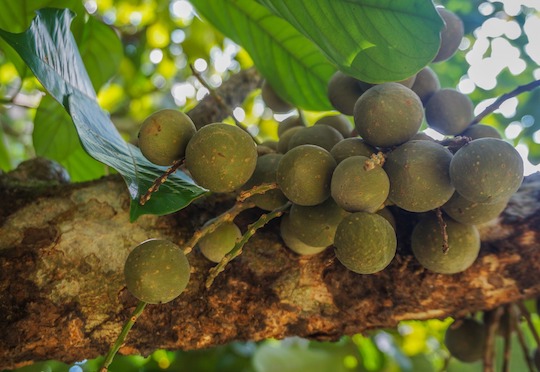Mantasa, a research institution and advocacy organization based in East Java, Indonesia is working to change the narrative of Indigenous food and nutrition sovereignty across Indonesia by reincorporating Indigenous wisdom and native wild plants into Indonesian diets.
Mantasa works with Javanese, Papuan, and other Indigenous villages to domesticate wild edible plants and grow them in communal gardens. They partner with women to document traditional knowledge, plant and maintain gardens, and sell surplus produce in local markets to help diversify more communities’ palates.
“I actually believe that their food is their medicine, and their medicine is their food,” says Hayu Dyah, Mantasa’s founder. “Their foods come from the forest, which is fresh, seasonal, and grows from the best quality soil, which guarantees nutrition-dense food.”
Despite a natural abundance of edible flora, Mantasa finds that Indigenous communities are eating increasingly fewer native foods, including dozens of varieties of green leafy vegetables, wild mushrooms, fruits, nuts, herbs, and other indigenous plants.
Mantasa attributes this trend to many Indigenous communities’ reliance on foreign and domestic government food packages. The packages include rice, instant noodles, palm oil, sugar, packaged coffee, and tea.
Read full article Bringing native plants back to indigenous diets in Indonesia at foodtank.com
Photo credit: Najib Zamri from Pixabay
26 octubre 2020Original Author: Foodtank

